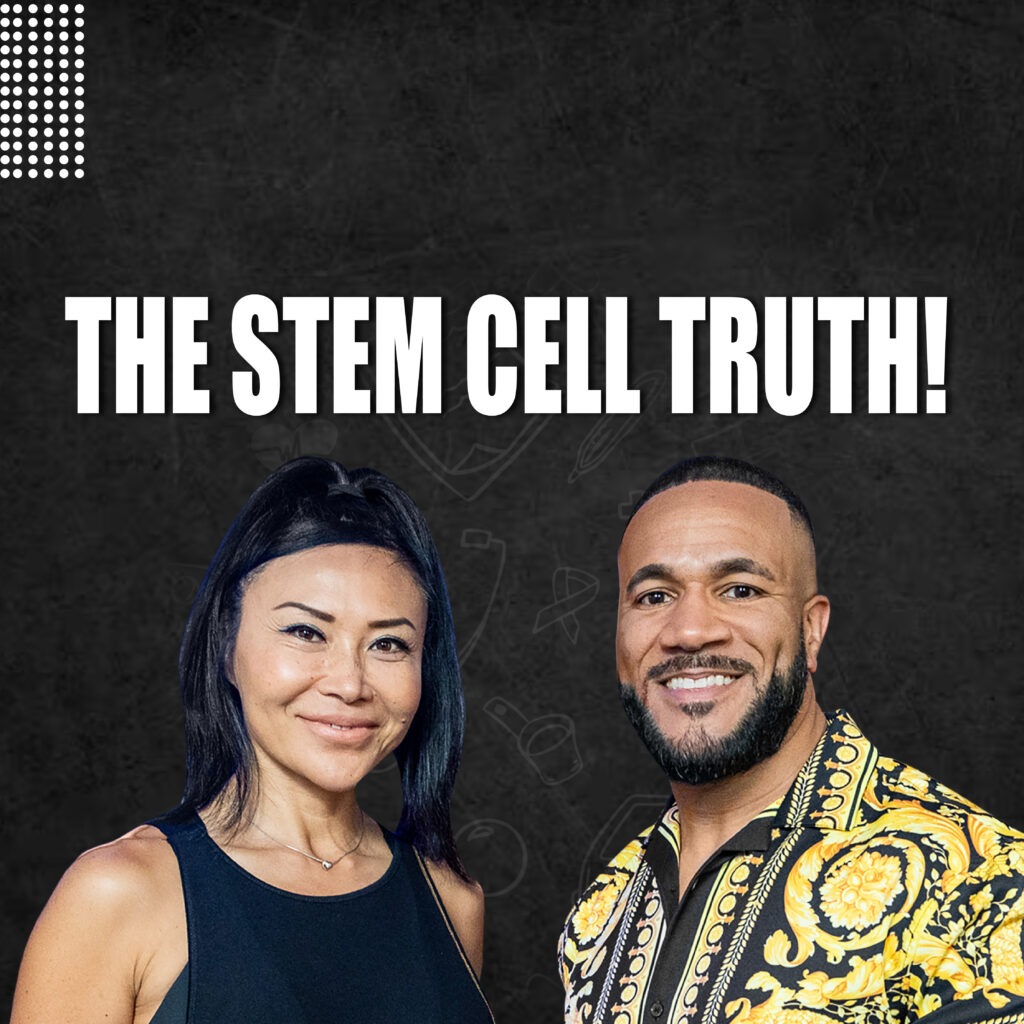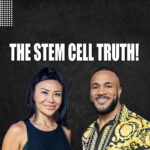What if a single therapy had the potential to not only treat symptoms but to fundamentally restore health? That’s the question Dr. Joy Kong, a regenerative medicine physician, educator, entrepreneur, and author of Tiger of Beijing, explores in her groundbreaking work with stem cells.
On “A Healthy Point of View” podcast, hosted by Sam Tejada, CEO and Founder of Liquivida®, Dr. Kong shared her remarkable life story and how it shaped her mission to revolutionize medicine.
Why Flying Overseas for Stem Cells Could Be a BIG Mistake! Dr. Joy Kong | Ep. 77

A Childhood in China, A Dream in America
Kong grew up in Beijing, where the curiosity to heal took root early. But her path to becoming a physician in the U.S. was anything but straight. After the Tiananmen Square protests, leaving China became nearly impossible. She fought for over a year just to get permission, only to be denied by the U.S. embassy for not having a sponsor. Many would have given up. She didn’t. Her memoir, Tiger of Beijing, lays bare not just the politics but the heartbreak, failed relationships, financial struggles, and the loneliness of starting over in a country that didn’t feel like home.
That same grit later defined her medical career.
From Architecture to Psychiatry and Beyond
Strangely enough, she didn’t start in medicine. Architecture was her first focus. But once in the U.S., her interests wandered, from journalism to biology to psychiatry. For more than a decade, she treated patients in mental health clinics, ERs, and addiction programs. The work was meaningful, but something didn’t sit right. Too often, the tools psychiatry relied on, medications, labels, and protocols, didn’t address what was really going on in her patients’ bodies. Hormones, diet, toxins; issues that shaped mental health but were rarely discussed in traditional psychiatry.
That frustration pushed her to ask harder questions: What if we’re treating the brain without healing the body?
A Different Kind of Medicine
Her upbringing in China gave her perspective. There, using both herbal remedies and antibiotics in the same household wasn’t unusual. But in the U.S., alternative medicine was often dismissed as “unscientific.” That never sat well with her. Functional medicine, which looks at the body as an interconnected system, offered her a way to blend the two worlds, Western rigor and Eastern wisdom.
Enter Stem Cells
The real turning point came when she saw research on children with autism treated with stem cells. The changes were dramatic. Kids who had been locked into repetitive behaviors or struggling with communication began making progress in months, not years. It was enough to pull Dr. Kong deep into the field of regenerative medicine.
Stem cells, she explains, aren’t magic, but they do remarkable things: reduce inflammation, repair tissue, restore gut health, and even help the brain form new connections.
Not all stem cells are equal, though. She breaks them down plainly:
- Bone marrow cells: weaker with age.
- Fat-derived cells: easy to harvest, but not without risks.
- Birth tissue cells: the strongest, safest, and most regenerative.
Of course, controversy follows. Critics worry about cancer risks, pointing to certain lab studies. But Kong points to clinical results that tell a different story: birth tissue stem cells often appear to suppress tumor growth.
More Than Autism
Her patients include those with Alzheimer’s, Parkinson’s, autoimmune disorders, and traumatic brain injuries. She’s the first to admit not everyone responds the same, but in her practice, more than 90 percent report real improvement. That’s a number worth paying attention to.
She doesn’t shy away from tough conversations, either. On vaccines, for instance, she acknowledges there’s no proven scientific link to autism, but she listens to parents who saw changes in their kids afterward. For her, it’s about staying curious and keeping the dialogue open.
The Bigger Picture
To Kong, regenerative medicine isn’t just a new treatment; it’s a new philosophy. One that stops asking, How do we mask the symptoms? and starts asking, How do we bring the body back to balance?
Her own story mirrors the medicine she practices: breaking down, rebuilding, adapting. She left behind the safety of conventional psychiatry to chase a vision that many dismissed. And just as she carved out her own life in America against all odds, she now helps patients reclaim theirs.
As she puts it: “Resilience is not just for survival; it’s for healing.”

